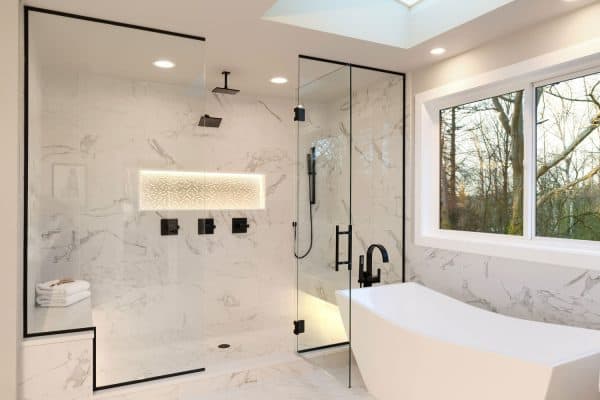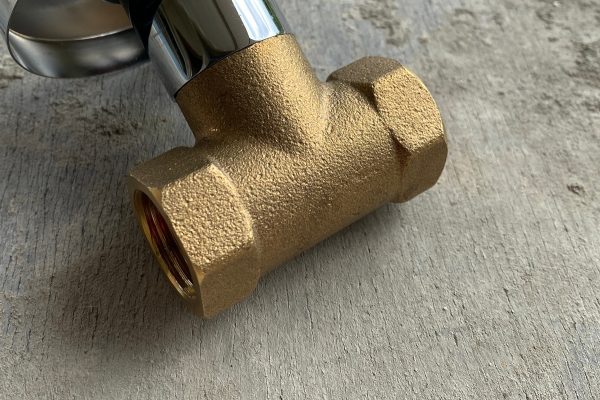If you're in the midst of a bathroom remodel, you probably want to select materials carefully. Bathrooms can increase the overall home value considerably, but they can also be pricy. And you don't want to redo the same project too soon. So if you're looking for the right shower, one question you have is probably, how long do showers last? We've researched various shower materials to let you know which lasts longest, so you can make the best choice for your home.
Showers made of tile will last for 20-years or more. However, they will require yearly maintenance to achieve such a long life. Showers made of prefabricated fiberglass or acrylic last around 10-years, with considerably less upkeep.
Read on to learn more about what kind of care that showers require. This article will also cover the different kinds of shower materials and everything you need to know about them - which one is easiest to clean, most durable, and more.
![Modern white bathroom with shower and window, How Long Do Showers Last? [By Material Type]](https://homedecorbliss.com/wp-content/uploads/2020/10/How-Long-Do-Showers-Last-By-Material-Type.jpg)
Prefabricated Fiberglass
Prefabricated fiberglass (or acrylic) is a standard shower option. It's an affordable, easy to install choice. Replacing a prefabricated fiberglass bath or shower only takes hours. Even the cleanup after installation is easy.
Fiberglass and acrylic have similar appearances (though acrylic features a glossy finish). They are typically available in white, though it is possible to find them in other colors. Fiberglass is slightly cheaper but also slightly less durable. This kind of shower lasts, on average, 10-years.
Ceramic and Porcelain Tiles
Ceramic and porcelain tiles offer unlimited options for creating a truly one of a kind shower. If a white fiberglass shower seems dull and uninventive, consider ceramic or porcelain tiles. There's no end to the color, patterns, and even textures available. You can basically make your shower look like anything you wish, with the creative opportunities provided by tile.
One advantage of ceramic or porcelain tiles is that a damaged, cracked, or chipped tile is easy to remove and replace. In the case of fiberglass, you are stuck waiting to replace the entire shower.
Ceramic tiles are more affordable than porcelain, but again, they are also slightly less durable. You can read more about ceramic versus porcelain here: "Is Porcelain Or Ceramic Tile Better For Showers? What homeowners need to know."
A shower made of porcelain or ceramic tile could last as long as 75-years in theory but will need to be resealed every year (less if the shower is used frequently). Grout also needs to be replaced. This varies depending on how the grout is maintained and cleaned but expect to re-grout every ten years.
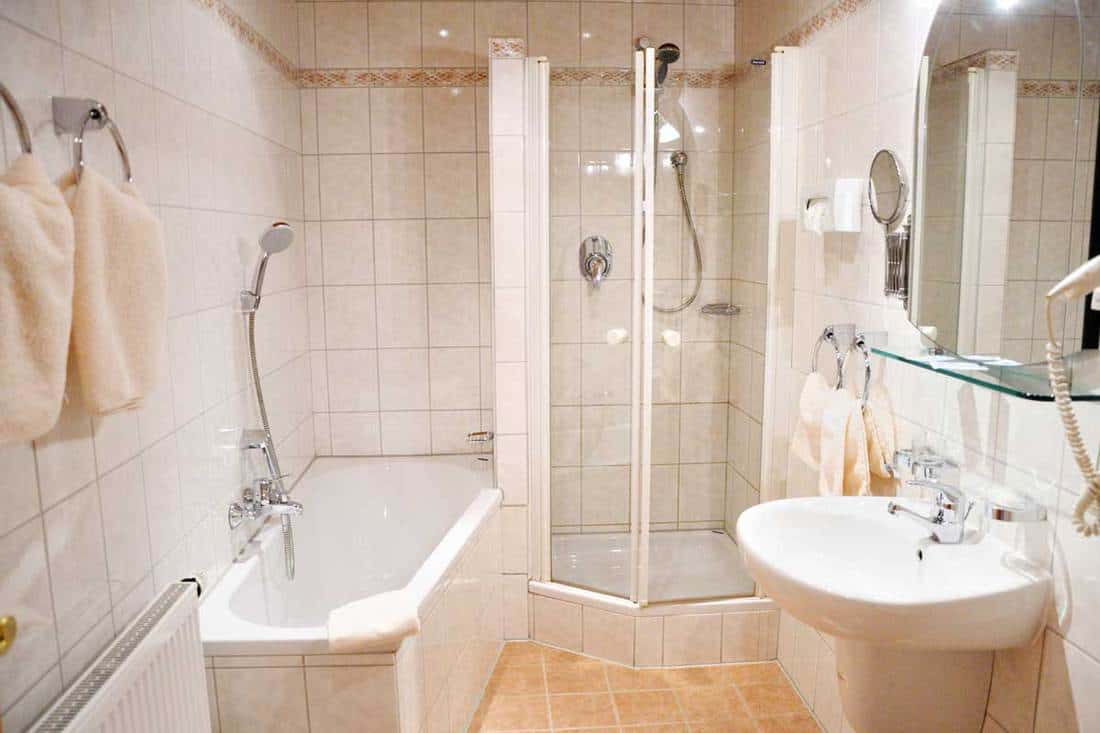
We may include affiliate links and curated AI content to highlight top design styles.
Glass Tiles
Glass tiles are uncommon, as they are more elegant than practical. On the plus side, glass tiles are reflective, creating the illusion of a larger shower. On the other hand, they are difficult to install and expensive. They can also be hard to maintain (while they are easy enough to wipe clean, they need frequent attention to remove watermarks and soap scum). Glass tiles also aren't particularly durable and scratch fairly easily.
Like other tiles, the glass tile itself can last a long time (potentially, as long as you live in the house). However, you may end up replacing a lot of tiles in the meantime since glass isn't particularly hardy. You'll still be resealing every year or so and re-grouting every 10-years.
Stone Tiles
Stone tiles generally are made of marble, granite, or slate. This material does provide a contemporary and natural look. However, like glass tiles, they are an expensive option that may not be practical for most people.
Stone is porous, which means it can be difficult to maintain as a shower tile. It absorbs water and soap, and it collects grime and dirt. And if you have mineral heavy, hard water, it's even more of a problem.
Stone tiles also will require re-sealing regularly. Though it's comparable to other tiles for a long lifespan, stone tile is the most work to maintain. This one is really chosen more for appearance and style than any practical reason. Unless you really love the look of this one, it's probably best to avoid it.
What Is The Most Durable Shower Material?
Prefabricated acrylic (even more so than fiberglass) is the most durable material for a shower. It isn't particularly easy to scratch with some basic care. It doesn't chip or crack like tile can.
The biggest cons of acrylic are mostly aesthetic (some people prefer tile's color options, for example). If you're looking for true durability and a shower that can keep going, acrylic is the choice for you.
What Is The Easiest Shower Material To Clean?
Once again, acrylic is the winner. Because of its smooth walls, it's easy enough to just wipe down with a non-abrasive cleaner. Most acrylic showers are made with special mold and mildew prevention, and the only area you really have to take any special care of is the seams.
The only downside to cleaning an acrylic shower is if you have hard water. Hard water tends to yellow the shower walls. This can be dealt with by wiping the shower with vinegar, then cleaning with a sponge and baking soda.
The next best option for an easy to clean material is porcelain or ceramic tiles. While they are easy to wipe clean, the multiple grout lines are the problem. The grout takes frequent scrubbing and resealing, and because of this, they are a second best option.
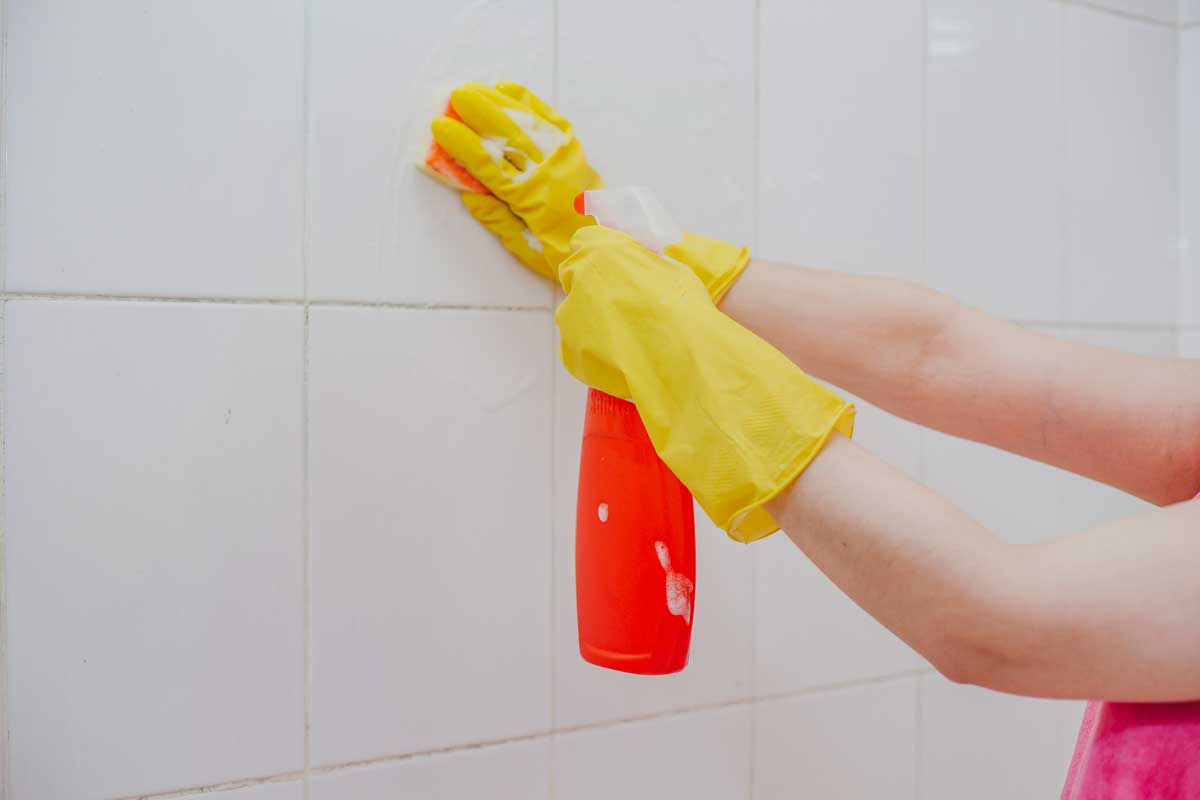
What Is The Best Material To Use For A Shower Floor?
Acrylic has seemed like the winning choice so far, but it may not be the best for a shower floor. One of the flaws of prefabricated acrylic is that it comes in large sections. If a small crack develops, you're stuck replacing the entire thing. However, you can simply remove and replace one tile with tile if that's all you need. This is one way that tile beats acrylic.
If you choose to go with an acrylic shower floor, select one with adequate reinforcement underneath, for example, a multi-density fiberboard material. Acrylic, thanks to its durability, is less likely to crack than other options. Just select one that is reinforced, and then you won't have to worry about springing any leaks.
If you prefer tile, porcelain is the best option for a shower floor. It's durable, easy to clean, and isn't porous like other materials. It's available in a variety of textures, an important feature to prevent slips and falls.
What Is The Best Type Of Tile To Use In A Shower?
If the idea of cleaning grout doesn't deter you, and you really want a tile shower, the best and most durable type is porcelain tile. Porcelain is easy to clean; simply wipe off the water after every use. Glazed porcelain will need less cleaning. Selecting large tiles (and therefore, less grout to clean) will also simplify your work.
Porcelain is more stain and water-resistant than most other tiles. It is available in a variety of colors and patterns. It can even mimic other kinds of tiles if you prefer. For example, select one that is faux-stone for the beauty and high-end look of stone, without the difficult maintenance.
How to Reseal The Tiles and Grout
If you select a tile shower because of its longevity, you'll need a few supplies to reseal every year. First of all, you'll need a cleaner. You can use a paste made from white vinegar and baking soda. You can also try a premade option such as this Natural Tile Grout Cleaner:
Click here to see Natural Tile Grout Cleaner Heavy Duty Non-Abrasive on Amazon.
You will also need a grout brush like this one:
Click here to see The Crown Choice Grout Cleaner Brush With Stiff Angled Bristles on Amazon.
You will also need a grout sealer. Select one that's appropriate for your shower material. For a stone tile shower, you'll want something like this Grout & Granite Penetrating Sealer from The Floor Guys. This product works well on marble, travertine, limestone, and slate.
Click here to see Grout & Granite Penetrating Sealer from The Floor Guys on Amazon.
Lastly, you'll need something to apply the sealer. A recommended option is this Stella Professional Sealer Applicator:
Click here to see Stella Professional Sealer Applicator (2 Pack) on Amazon.
Steps to Reseal
- First, clean the grout. Using the grout brush and cleaner, scrub in a circular motion.
- Rinse the grout with fresh water and a rag. Allow the grout to dry thoroughly (at least 24-hours).
- Using the applicator pad and the grout sealer, cover each grout line liberally. Allow the sealer to sit for about 5-minutes.
- Wipe off any excess sealer that got onto the tiles or anywhere else besides the grout lines. The sealer can discolor the tiles if it isn't removed promptly.
- For the best results, allow the first coat of sealer to dry thoroughly, and repeat for a second coat.
Note: Glass, ceramic, and porcelain tile are non-porous. They do not require resealing of the actual tile, just the grout. Of course, always follow the instructions of the manufacturer and shower installer as to proper care. Stone is porous and does require the sealer to be spread on the tile itself, in addition to the grout.
In Summary
When selecting material for a new shower, the common options are prefabricated fiberglass or acrylic, ceramic or porcelain tile, glass tile, and stone tile. While tile lasts longer (20 or more years), it requires upkeep every 6-months to a year. Installation is considerably more expensive. Fiberglass and acrylic showers require very little maintenance and last around 10-years. Most people select acrylic due to its easy cleaning and care, short installation time, and affordability. However, it's ultimately a choice that is a matter of personal preference, as each option comes with its own distinct style.
To read more about showers, try:
What Is The Best Material For Shower Walls? [5 Options Examined]


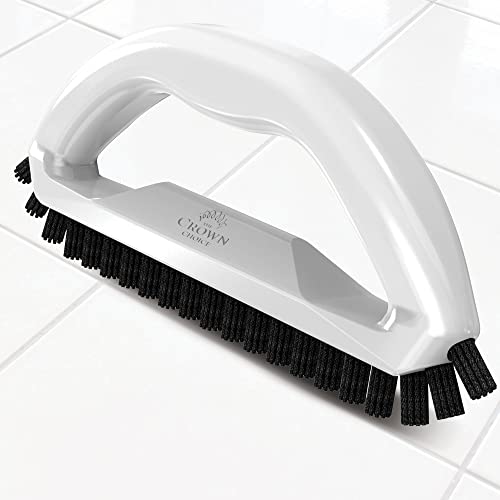


![Marble walled shower wall, 5 Best Types Of Shower Wall Panels To Consider For Your Bathroom Renovation [The Ultimate Guide]](https://homedecorbliss.com/wp-content/uploads/2023/07/shutterstock_2138160219-600x400.jpg)
